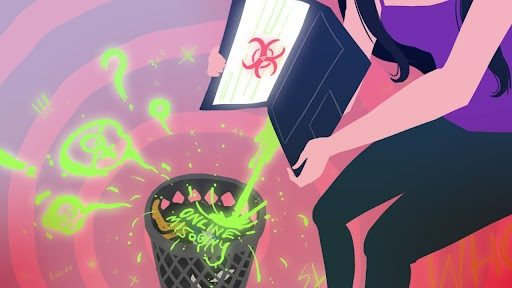
MANILA, Philippines – Following the earthquake in Abra in July 2022, educator and entrepreneur Mia Magdalena Capuyan Fokno published a post on her Facebook wall, questioning the whereabouts of President Ferdinand Marcos Jr.
Some friends later sent her the link to a malicious video by vlogger Renan Padawi (who goes by the name “Jackfloyd Sawyer” online) attacking her, but she brushed it off. She did not know Padawi personally. But this was not the first time she had had to deal with online attacks, after all.
But because close relations insisted, she finally forced herself to watch it. Her reaction was so visceral, that it took time for her to get to the end of the video.
With each statement that Padawi made, Fokno cringed: “Kulang ka lang sa dilig (You just need watering)!” A rude way of saying she was badly in need of sex.
“Baka ‘pag nagkita tayo, shit, ibabangka kita sa dagat na walang hanggan. (Maybe when we see each other, I will send you off on a boat to the next life.)” In essence, threatening her life.
“It really was bastos. Nandiri ako. (It was really crude. It was disgusting.) I felt violated. He was saying some very sexually explicit things and kept pointing his finger and raising his clenched fist,” Fokno’s voice cracked as she recalled details during an interview with Rappler in March.
“I suffered sleepless nights, public ridicule, embarrassment, anguish. I felt unsafe online and in the real world. Knowing that he had many followers, I feared for my safety. I became paranoid and I made sure that I was home every day before it got dark.”
Fokno’s experience is not unique. Following the rise of social media, cybermisogyny has taken gender-based violence online.
There is no need to suffer in silence, however. Filipinos using the digital space have avenues of redress for incidents such as these.
As of May 2022, 3,700 cyber libel cases have been filed since the law was passed. From 2019 to 2022, 754 cases of violations of the RA 11313 (Safe Spaces Act) were reported.
Laws like the Safe Spaces Act and Cybercrime Prevention Act, as well as various support groups can hold individuals accountable and ease trauma that can result from online hate in all its many forms. What is important is to take action.
Roots of online misogyny
Men do not have a monopoly on misogyny, according to licensed professional teacher, psychometrician, and psychologist Eizaleen Fusingan-Lappay. But, to a certain extent, it thrives because society conditions us to think that women are inferior to men, and as such, are subject to their power and authority.
A United Nations Development Programme (UNDP) study conducted from 2017 to 2022 shows that 99.5% of all Filipinos have biases against women.
To a degree, the pervasive milieu of online hate contradicts a number of Philippine core values such as pakikipag-kapwa (treating the other as an extension of the self), according to Carolyn Sobritchea of the Commission on Higher Education’s Technical Panel on Gender and Women’s Studies, and the University of the Philippines’ Center for Women’s Studies Foundation, Inc.
However, she said, some of our indigenous values, like utang na loob (debt of gratitude), can be misused, especially if appropriated by the ruling class for their personal agenda and political gains.
Lappay attributed the boldness of perpetrators of cybermisogyny to the online disinhibition effect, which makes a person disregard societal norms due to the anonymity afforded them by online platforms.
Addressing trauma: Cybermisogyny and its discontents
Cybermisogyny can take many forms, from abusive language to grave threats.
“Things happen very fast online,” Sobritchea told Rappler in an interview last May. “Someone can post a woman’s naked photo or make a defamatory statement with the click of a button. The damage to someone’s reputation spreads fast, resulting in trauma and emotional distress.”
Some people may be sitting with unresolved feelings that are building up as trauma, which is when residual negative energy or feelings stored in the body remain unresolved after an experience or event.
Following an encounter with cybermisogyny, Lappay said, it is important to undergo debriefing sessions. She strongly advised working with a mental health professional to process the experience in a safe space.
Should someone not be able or ready to go to a face-to-face therapy session, there are support groups online and MindNation has 24/7 chat support that can help.
Different ways to cope
Whenever Christine Abrigana, who started Lagim: A Filipino True Crime Podcast in 2020, receives snarky comments, she steps away from her screen until the emotions pass.
She has made it a practice to delete inflammatory comments and block commenters because she doesn’t like dwelling on them. She also doesn’t discuss them with friends, though she sometimes vents on her Instagram Stories about mean comments.
When she decides to answer them, she draws from her experience working in public family law and approaches with compassion, understanding, and respect – mindful that the person on the receiving end may be going through something.
When activist and academic Renee Karunungan-Edwards’ Facebook wall and message inbox were flooded with hate-filled messages following a post about then-candidate Rodrigo Duterte in March 2016, she documented them, taking screenshots that she then shared on her wall.
A previously published Rappler report documented the abusive messages online. Some Duterte supporters said back then: “Ul*l. T*ngina mo. UP ka man din galing, pero utak dilis ka. Bobo ka ang pangit mo. Sana ma-rape ka, manakawan ka. ‘Yan gusto mo, ‘di ba? Ayaw mo ng pagbabago dahil ayaw mo kay Duterte. Sana lang one of these days ma-rape ka para matauhan ka.”
(Stupid. S*n of a b*tch. You are from UP but you have the brain of an anchovy. You’re stupid and ugly. I hope you get raped, or get mugged. That’s what you want, right? You don’t want change because you are against Duterte. I hope one of these days you get raped so you’ll become enlightened.)
She subsequently filed cases – with legal services offered pro bono – citing violations of the Cybercrime Prevention Act and Omnibus Election Code. As of March, the Comelec had handed down subpoenas. The legal process is ongoing. Karunungan-Edwards, who is now based in the United Kingdom, will attend court proceedings online.
Fokno, Abrigana, and Karunungan-Edwards have accepted that the online attacks on them ebb and flow, depending on the political climate in the Philippines.
Online crime and offline consequences
After suffering through many sleepless nights and anxiety, Fokno decided to file a case against Padawi. Since she lives in Benguet, Fokno went to the Philippine National Police Regional Anti-Cybercrime Unit in the Cordillera. There, through an app, an officer helped her document the video that Padawi posted.
Then, she wrote an affidavit. She also asked witnesses, who had watched the video and seen firsthand the effects it had on Fokno, to write statements.
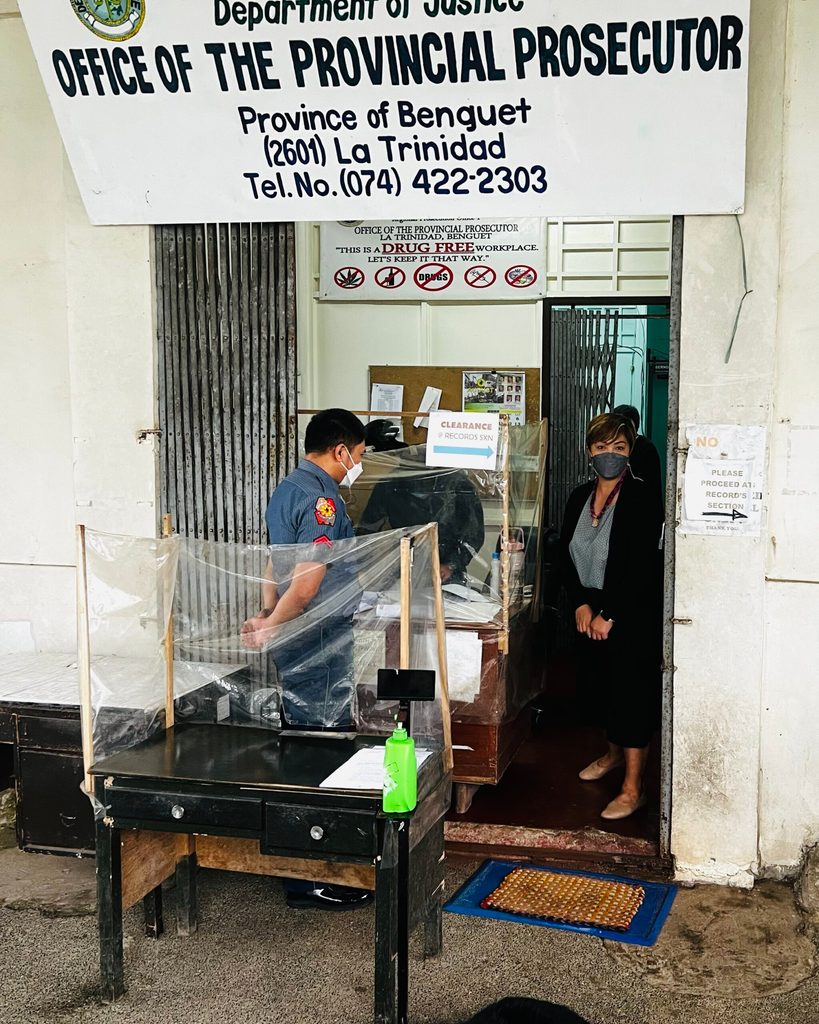
With those documents, a police officer accompanied her to the provincial prosecutor in Benguet. In September 2022, the case People of the Philippines vs. Renan Padawi was officially filed. In February 2023, Padawi pleaded guilty to violating the Safe Spaces Act. He has yet to settle the fine and civil liability of P150,000.
Fokno did not need to spend any money on any step in the process.
She has been encouraged by messages she receives from women, many of whom are strangers to her, thanking her for inspiring them to fight back against their attackers.
Building communities of empathy and action
According to Lappay, empathy-building connections and communications will empower people to speak kindly and mindfully online, as well as to help set awareness in dealing with cybermisogynists, including forging alliances to help those who are defamed and shamed on various online platforms.
“We have the power to create safe spaces in the virtual world if we speak up and stand for the victims,” she said. Then, we can once again look at each other, eye to eye, as fellow human beings and extensions of each other, though mediated by technology.
Sobritchea advocates for a multi-layered approach. First, for content moderation of online platforms to prevent online abuse – knowing full well that there are risks to regulation, which can curtail freedoms, especially of small organizations and the marginalized.
Next, by showing models of positive portrayal of women and giving space for their narratives to be heard. And finally, by empowering women to help them protect themselves. She said there are many laws and mechanisms to combat violence against women.
Dr. Gregor Mate, who has lectured and published extensively on life-long impacts of trauma, blames our modern globalized culture for what he calls an epidemic of loneliness.
But an antidote lies in technology too: “We have to use the technologies that we have to connect with each other. People need to build virtual communities where they can share their ideas, their miseries, and their joys, and talk about their values. Seek connection on the local level, internet level.”
Though it seems that cybermisogyny has become commonplace in our society, individuals and groups can fight back to destroy the culture of online hate: by healing from their trauma, by seeking justice under the law, and, in the long-term, by building communities of care that hark back to the values deeply embedded in our Filipino identity. – Rappler.com
Mari-An Santos is a fellow of the Aries Rufo Journalism Fellowship.
![[OPINION] Cybermisogyny: Thoughts after I got a death threat online](png/screenshot-2023-03-08-at-1.37.46-pm89fb.png)
![[ANALYSIS] Cybermisogyny violates human rights](jpg/cyber-misogyny-human-rights89fb.jpg)
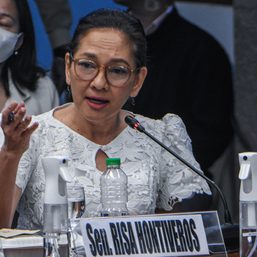



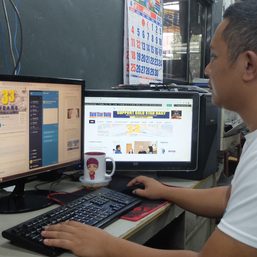
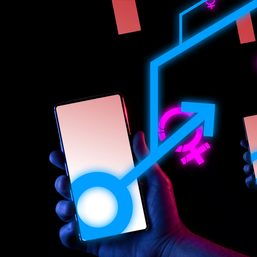
There are no comments yet. Add your comment to start the conversation.